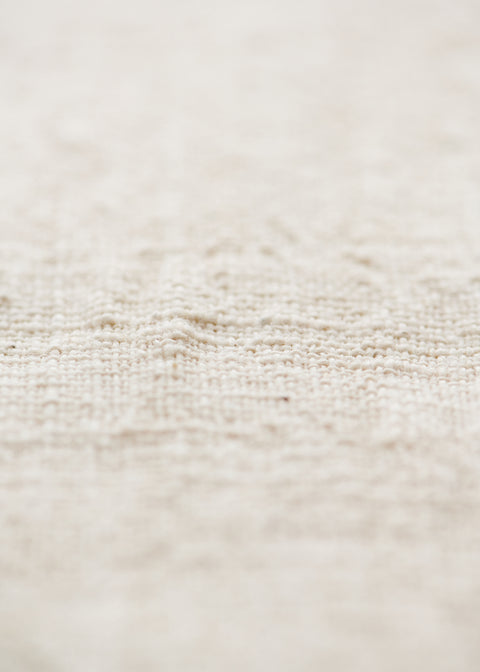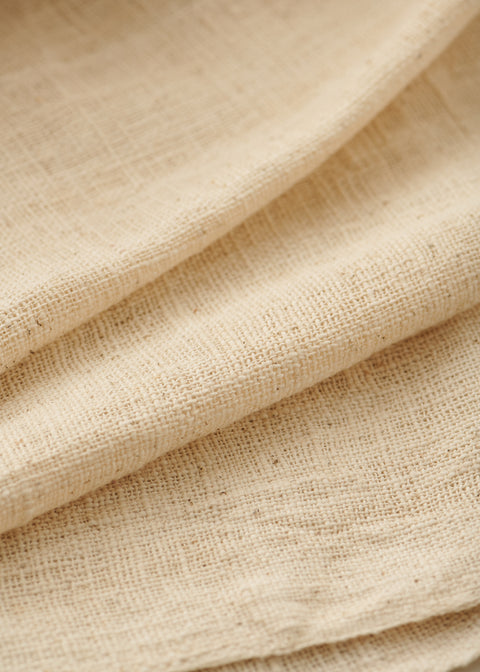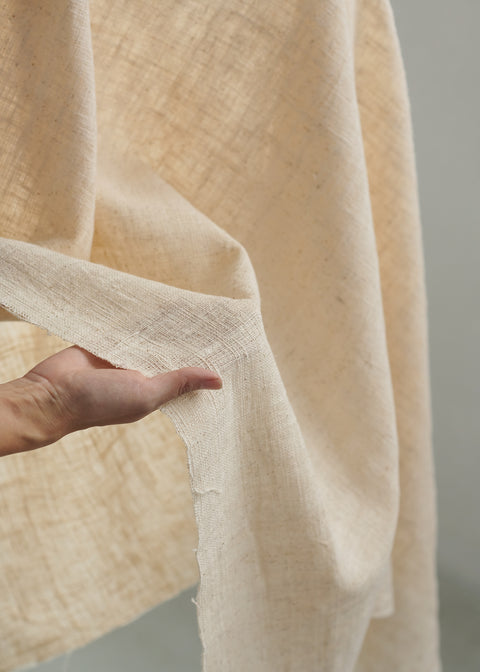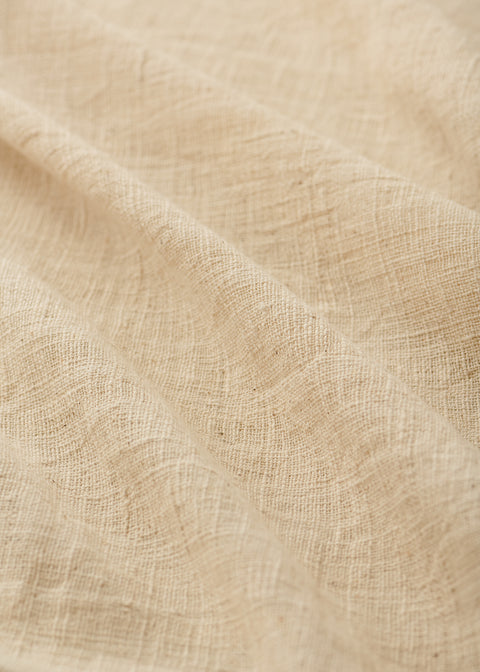



Petit Charka Kala Cotton Khadi
*The displayed price is per 10cm, and you can purchase in 10cm increments. For example, if you want to purchase 80cm, please select "8" as the quantity.
Product Description
Kala cotton features a unique texture with uneven shrinkage.
Compared to Bengal khadi and other fabrics CALICO typically handles, it feels stiffer to the touch. Yet this roughness offers a refreshing change, evoking the charm of cotton from bygone eras.
Peti Charka is a special process. (In august 2023, Single Charka changed its name
to Peti Charka to match the language used by the locals.)
Throughout India now, traditional charkas have been replaced by ambar charkas (highly productive charkas). Spinning by Peti charka, which is made like a large portable book size charka, is mostly for home use, or a symbolic image of spinning while meditating in school.
We were skeptical when we heard that Khamir could make Peti Charka handspun and handwoven fabric as it is such an inefficient job.
The Sodha Rajput women made it possible even though they were not originally spinning peti charka. It was more than 30 years ago that we were taught by an NGO that, when they were young, they were obsessed with embroidery such as soof. But as they grew older and embroidery became difficult, they began to seek other handicrafts. It is also customary for Sodha Rajput women to not work outside their homes. The work of Peti Charka, which captivated these women who were naturally clever and curious, was passed down from village to village among the Sodha Rajput women, and now more than 200 women are engaged in it.
As Kala Cotton is a short fiber similar to wool of the local sheep they are not easy to spin. There are women who excel and women who are not good at it.
Production efficiency is only about 15% of ambar charka but there are still women who find joy in testing their skills rather than money.
This peti charka spun, richly textured cotton khadi fabric.
The thread thickness ranges from 10 to 14 counts, meaning it has significant variation and individual character.
Please experience its irreplaceable texture for yourself.
Size
Fabric width: approx. 100 - 110 cm
Materials
Indigenous organic cotton
Region of production
Kutch, Gujarat
System of design
By craftpersons
Spinning
Hand spinning with single charka
Weaving
Plain weaving by hand
Dye
Undyed-Natural
Before you purchase
* This product is also carried in the stores, so it may occasionally be sold out at the time of your order through the website. Unfortunately if that the product is out of stock after you placing the order, we will contact you. We appreciate your understanding.
* In case of ordering fabrics with multiple quantities, we will send you the goods in the same or simillar shades as much as possible, but in case we can not fullfil your request, we will accept returns at your expense. Please consult with us. (Please note that we do not accept returns after cutting or processing.)
* Hand-spun yarn is mainly made by women in the village using an efficient modern spinning wheel called an “Amber Charka.” When the yarn breaks, it is spun by hand, resulting in neps, which is a characteristic feature.
* Most of hand-spun and handwoven fabrics are produced in village huts, and as a result, threads or grass may occasionally be mixed in. Additionally, there may be uneven areas, wrinkles, or slight discoloration caused by thread breaks, as well as unavoidable minor stains. Please understand that these are characteristic features of those fabrics.
* Depending on the material, friction during use may cause pilling or fuzziness. Excessive friction or pressure can cause a fabric damage, so please avoid such a situation.

